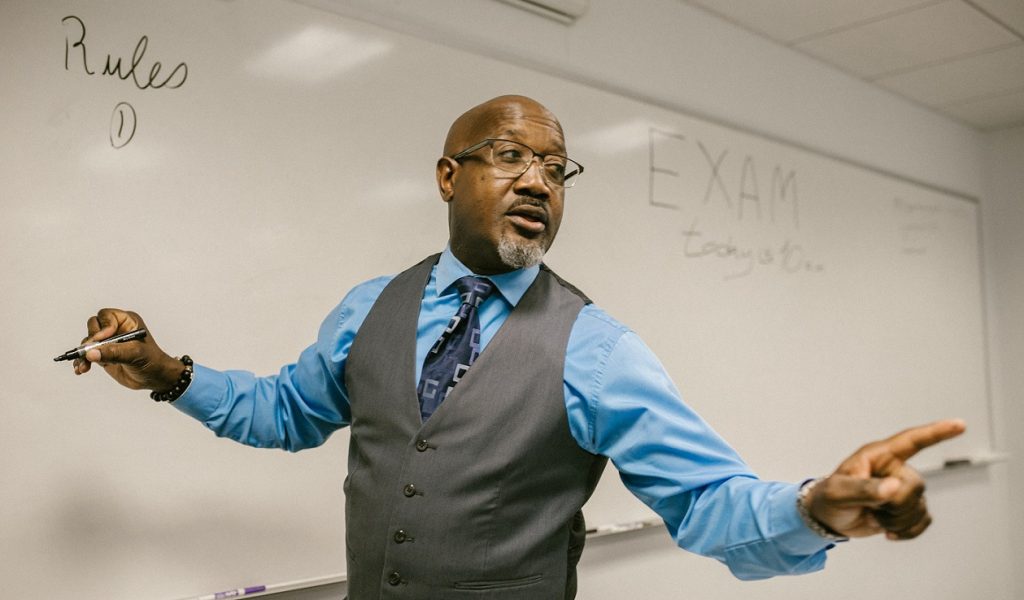Tagged Under:
Work With Your Strengths
What is the VIA Survey, and can it help reveal your super teaching powers?
Superman’s résumé is pretty impressive. He’s got superhuman strength, X-ray vision and enough stamina to fly around the globe, sans plane. His weakness, famously, is Kryptonite. But here’s a crazy idea: What if everything about you contained strengths, and there is no Kryptonite?
That’s the perspective taken by the VIA Institute on Character. Based in Cincinnati, the nonprofit is dedicated to understanding and improving human experience, via studying character traits. Its work is based in the positive psychology movement, which seeks to identify and boost mental assets, instead of focusing solely on problems. Positive psychology is used by a variety of professionals — therapists, teachers, coaches, counselors and other practitioners — with the goal of helping people thrive. Instead of asking, “What’s wrong with me,” positive psychology flips the script and asks, “What’s right with me, and how can I foster that?”
CHECK IT OUT: The CB-9000 Series Concert Bass Drum
Twenty-Four Strengths
Back in the 1990s, two pioneers in the field of positive psychology, Christopher Peterson and Martin Seligman, spent three years on a project. They worked with 55 social scientists, seeking to identify and classify the positive strengths in people. You know, the virtuous good stuff we aspire to, such as bravery, fairness, teamwork, and the ability to love and be loved.
That project culminated in a 2004 book, “Character Strengths and Virtues: A Handbook,” and a classification of 24 qualities that are considered universal, that is, they span across different cultures, belief systems and countries. The 24 strengths are broken down into categories of virtues, like this:
- Courage: This group of character traits includes Bravery, Honesty, Perseverance and Zest.
- Humanity: This category spotlights Kindness, Love and Social Intelligence.
- Justice: Fairness, Leadership and Teamwork are all part of this.
- Temperance: Traits such as Forgiveness, Humility, Prudence and Self-Regulation are categorized here.
- Transcendence: Appreciation of Beauty & Excellence, Gratitude, Hope, Humor and Spirituality get classified under this.
- Wisdom: Under this umbrella, character traits include Creativity, Curiosity, Judgment, Love of Learning and Perspective.
Everyone possesses these 24 qualities, but in combinations that are unique to them. For example, some people have bravery as one of their top strengths, while others might have that as “a lesser strength” and rank higher in other qualities like Leadership or Kindness. Supposedly, knowing one’s top strengths and learning how to work with them can help people feel more confident, handle stress better and reach their professional and personal goals.
VIA Survey
The project also created two free tools for understanding these character strengths, called the VIA Inventory of Strengths (or VIA Survey), which is for adults, and the VIA Youth Survey, which is designed for those aged 8 to 17.
By now, more than 25 million people have taken the VIA Survey. It’s a 240-item questionnaire, which takes about 20 minutes to complete. For example, there will be a statement, such as “I always admit when I am wrong,” and then you click on “very much like me,” “like me,” “neutral,” “unlike me” or “very much unlike me.”
 Want to take the survey? Here are two sites; both are free but you will have to take a few minutes to set up an account and password. Try VIA’s Website or the Authentic Happiness website from the University of Pennsylvania, where Seligman is a professor. (Dr. Peterson, who taught at the University of Michigan, passed away in 2012.)
Want to take the survey? Here are two sites; both are free but you will have to take a few minutes to set up an account and password. Try VIA’s Website or the Authentic Happiness website from the University of Pennsylvania, where Seligman is a professor. (Dr. Peterson, who taught at the University of Michigan, passed away in 2012.)
I had taken the survey in November 2021 and took it again in December 2022, and my results were strikingly similar. My top traits were almost identical, as were the ones that came in at the bottom of my list of 24 traits. That’s where I’m thinking, man, I have some stuff to work on. But good news: “Your top five are the ones to pay attention to and find ways to use more often,” the survey advises. Ah, okay. Remember, this is positive psychology. It does not say challenges don’t exist, but rather it focuses attention and resources on how to create meaningful and fulfilling lives — regardless of what’s happening around us.
When you think about the best qualities a music educator could have, you might think about things like creativity, a love of music and organizational skills. All true, of course, but what’s so interesting is that within the 24 strengths, there are all sorts of combinations where a music educator can succeed. One teacher might discover their top strengths are Love of Learning, Appreciation of Beauty & Excellence, and Hope — and they are an amazing music educator. Another might discover Bravery, Spirituality and Teamwork as their top strengths — and be an equally amazing, yet totally different music educator (and human).
Using the Strengths in Your Classroom
- Think about your music students in terms of their strengths, rather than honing in on their weaknesses. For example, you might have a lesson plan that builds on the strength of Curiosity. What happens if you and your students come up with some song lyrics, then come up with a musical tune to go with it. What about if you try it the other way around— play some music and ask students to write lyrics to it? Discuss with them, which one came more easily for them, and why do they think that is? Did some students find one easier than the other, or did the group have similar experiences? Another example: For young learners, ask them to listen to music with their eyes open, then closed, and talk about their perceptions.
-

When you give feedback to students, highlight what strength you see them expressing, and in this way, you can be very specific when giving praise. For example, “You showed a lot of Bravery by volunteering to sing the solo today,” or “that Teamwork was fantastic; I saw how well you were working with the rest of the percussionists.”
- For parent-teacher conferences or for assessment periods, ask students to think about their strengths and share a few areas where they feel they are performing well and why.
Figuring out your top five strengths and how you can use them more often with your students and colleagues is worth the time and can be both inspiring and enlightening.


















